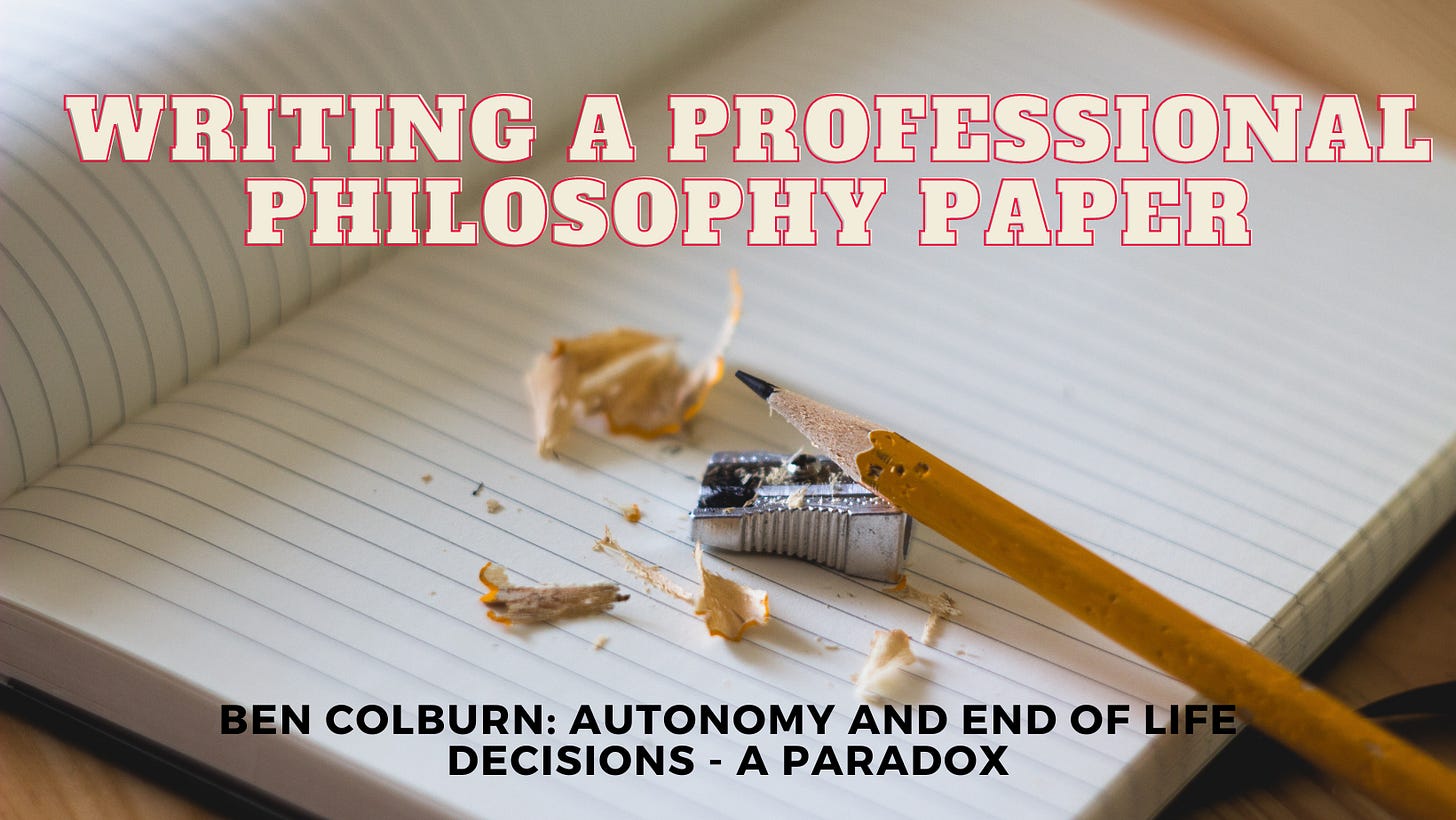Ben Colburn: Autonomy and End of Life Decisions - A Paradox
Writing A Philosophy Paper: See How The Sausage Is Made
Your $5/mth gives you access to my paper writing process, from the beginning research stage, which includes the notes I take throughout my reading, through the draft-writing, and on to completion of the final paper.
The first paper I’ll be looking at is Autonomy and End of Life Decisions: A Paradox by Ben Colburn, published in 2013 in the anthology Adaptation and Autonomy: Adaptive Preferences in Enhancing and Ending Life. In it, Colburn sets up a a paradox of autonomy in end of life decision making; according to Colburn, autonomy and its partner responsibility cannot occur when an agent feels there are no options available to take. For Colburn, when someone chooses to pursue Medical Aid in Dying (MAID) because they feel they have no options they are, paradoxically, not acting autonomously. That is, some set of external factors is in play that would preclude an agent from choosing MAID voluntarily, namely the feeling of having no choice.


